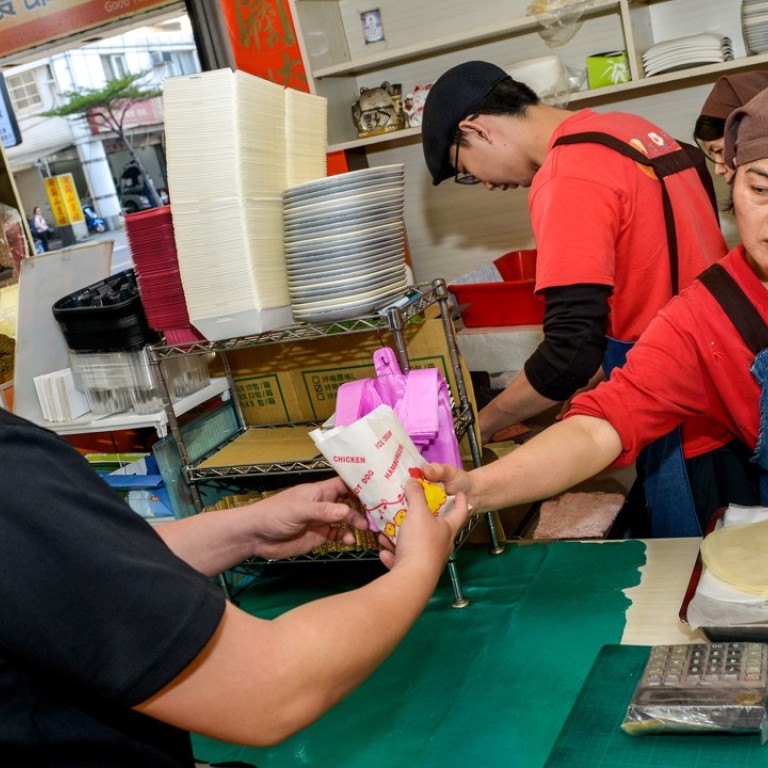
Breakfast bars in Taiwan: more American than New York diners, but battling to go upmarket as big franchises move in
Fast and simple is how Taiwanese commuters have always liked their Western-style breakfasts, but amid intense competition, breakfast bars face pressure to serve more nutritious food in cleaner, more welcoming surroundings
Chen Lu-yan, a 22-year-old university student in Taipei, eats largely Western food for breakfast: it might be a thinly sliced burger or an egg, bacon or spaghetti, it doesn’t matter. He finds this fare easier to stomach after realising than Taiwan’s staple of rice-based food prepared Chinese style, or traditional local breakfast combo of soy milk, a bun and a tea egg was too much for him.
“When I get up, I want to feel full, but I can’t handle that much,” says Chen, who frequents a breakfast bar near his flat and orders just one dish per meal there. He goes out for the meal to ensure it’s “fresh and hot”. A result that takes longer if made at home or in a Chinese-style restaurant, but breakfast bar chefs spend less than five minutes to prepare his order.
Taiwan’s secret surfing paradise and artist’s haven getting more popular by the day
Chen has eaten like this as far back as he can remember, just like his parents, a lot of his neighbours and a giant swathe of Taiwan’s overall population. Their habit explains why Taiwan has tens of thousands of diners commonly known as “breakfast bars.”
Breakfast bars populate every urban neighbourhood in Taipei, competing largely on price, sometimes with three or more per city block. Griddles placed near the loud, hardscrabble diner entrances attract people with the scents of waffles, sausages and brewed coffee.
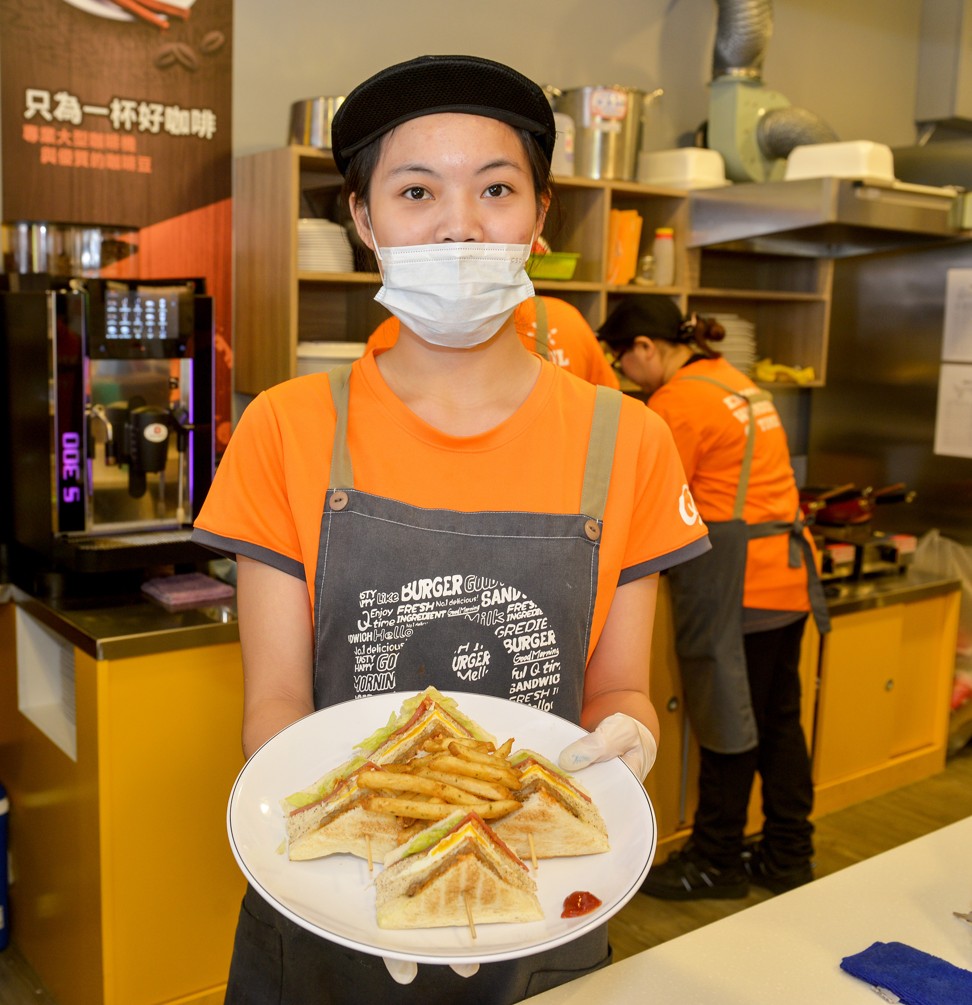
“The trend is that Taiwan’s salaries aren’t going up, yet people going to work are interested in quality and convenience,” says Cheng Rui-bin, chief executive officer of the QBurger chain of breakfast bars in northern Taiwan. “Because the salaries are low, everyone’s really busy. This is the age of busy, so people are always working.”
Taiwanese picked up the Western-style breakfast habit about 30 years ago as fast food culture from the United States began to influence the island.
Consumers went wild for McDonald’s, which opened its first Taiwan store in 1984, but couldn’t always afford the American chain’s prices, says Chuang Hui-tun, assistant professor at Chang Jung Christian University’s Graduate Institute of Taiwan Studies.
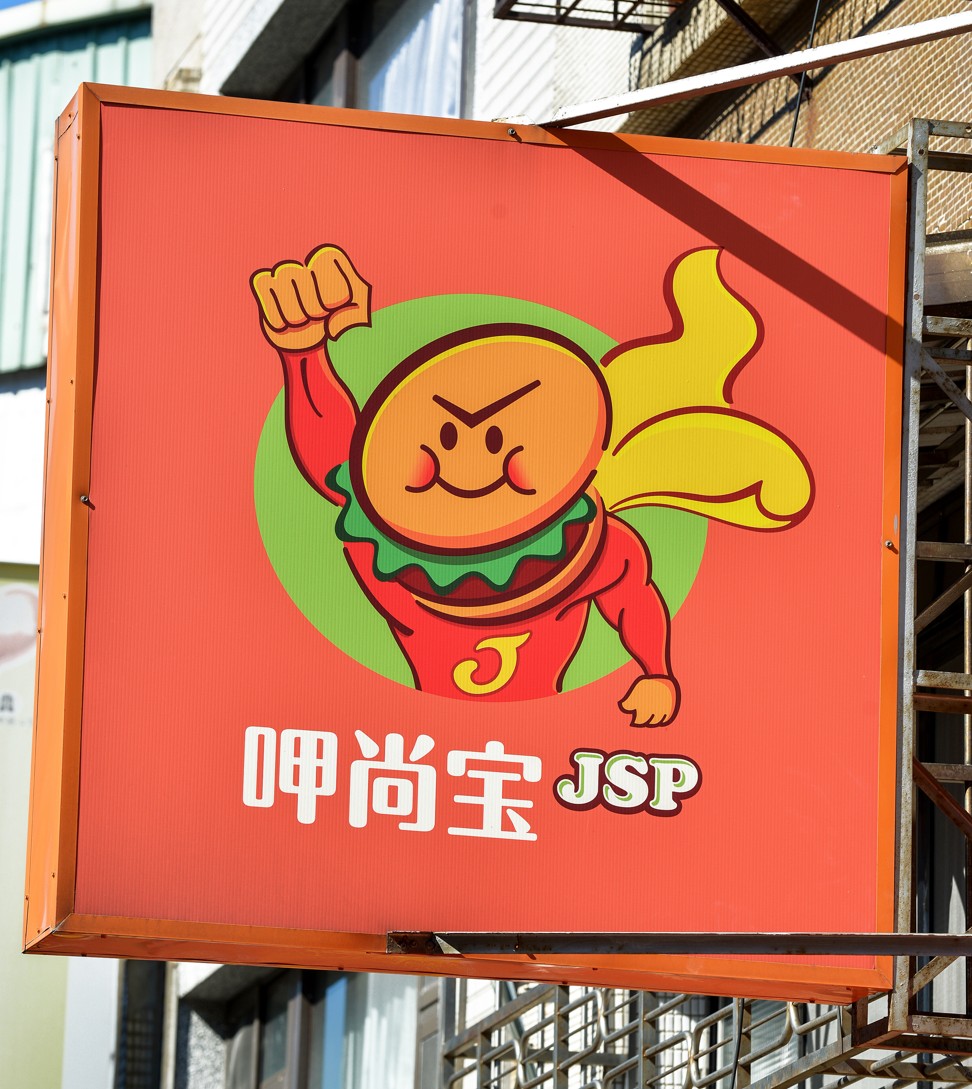
Then locally owned roadside breakfast carts began appearing with American fast food-like breakfasts, followed by the first diners with a couple of tables apiece and a newspaper rack.
“We were so craving that burger in high school,” recalls Chuang. “From the street vendor it would be cheaper.”
This has not stopped Mei Er Mei, a pioneering local chain founded in 1992 and still the best known, with 1,100 outlets.
Breakfast bars are going in the direction of Starbucks
A diner known as Liang Chen Chi Shih, where university student Chen eats, is typical of Taipei breakfast bars. The dimly lit, 22-seat restaurant is just two city blocks from a metro station, and sees about 100 people during its opening hours of 5am to 2pm – the normal time range in the breakfast business.
The 100-item menu covers burgers, boneless chicken, toast, fried eggs and Taiwanese-style fried noodles. Waiting times range from three to five minutes, owner Wu Chia-jung says. People spend an average NT$70 to NT$100 (US$2 to US$3.50) per meal order, he says. The diner serves a mix of commuters and neighbourhood people who stay near home long into the morning.
Taiwan’s northern tip: weird nature, wonderful street food
“Taipei commuters’ habit is they’re always in a hurry, so they don’t want to wait,” says Wu, 35, who has run the eatery for about six years. “But the residents here have more time.”
Taiwanese breakfast diners outdo American peers today on speed, convenience, freshness and price, says Nicholas Chen, a Taipei-based lawyer who used to live in New York. Chen recently stopped at one breakfast bar before a 6am bike ride. It wasn’t his first meal there.
“This neighbourhood shop is teeming with neighbourhood families, cyclists, motorcyclist and long-time patrons, waiting for a stool at a folding table or to bring takeaway orders home to the family for breakfast,” he says.
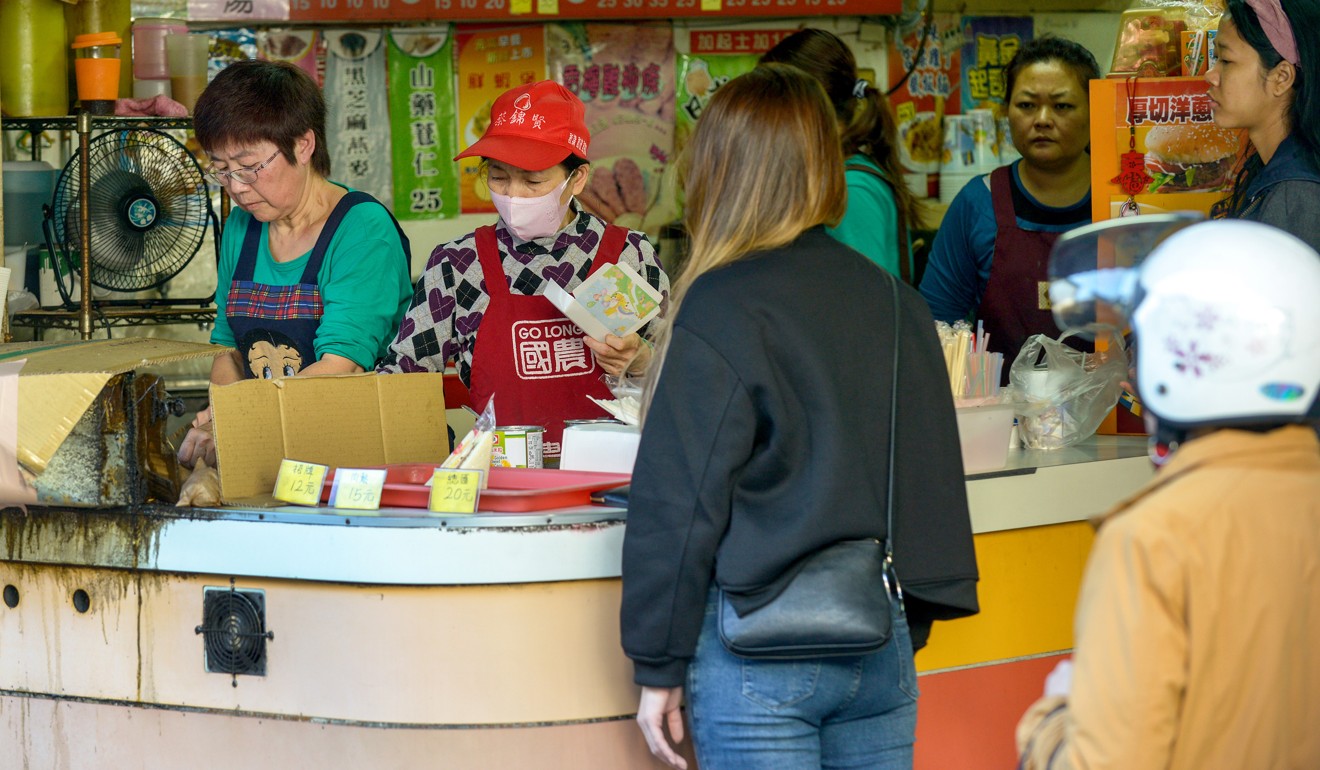
But the griddles face pressure now either to unplug or go upmarket as tastes change. Competition among breakfast bar owners, from family businesses to chains covering hundreds of franchises, has already closed countless diners as the net total reaches saturation point.
Those that thrive over the coming five years will sell more nutritious meals in cleaner spaces to meet the growing demand of consumers in the Taipei metro area of six million people, Taiwanese health food expert Wang Ming-yung says. They would also need to avoid major price hikes or additional food preparation times.
“The quality is something we need to pay attention to. It’s mostly processed food, processed meat and fried potatoes,” Wang says. “What about the health of children?” Breakfast bars are “transforming” in an effort to provide more better nutrition by frying less and adding vegetables to sandwiches, he says.
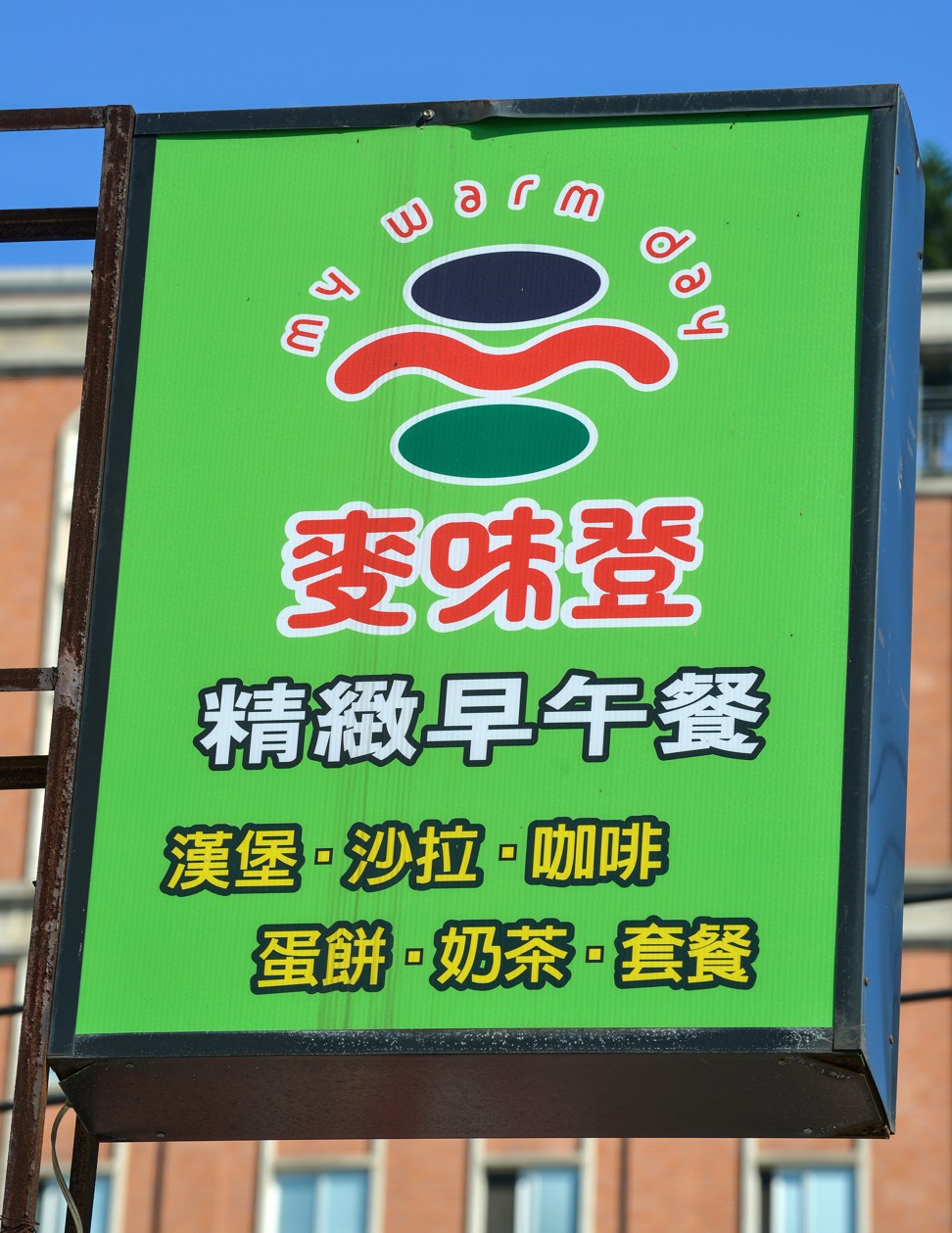
However, breakfast bars traditionally specialise in fast, fried food such as pre-made hash browns and chicken burgers. Burger buns and sandwiches are white bread. Mayonnaise is a common condiment. Heavy doses of sugar sweeten the milk teas and fruit juices.
The quality is something we need to pay attention to. It’s mostly processed food, processed meat and fried potatoes. What about the health of children?
“Breakfast is the so-called most important meal of the day, but now it has got to be convenient,” Wang says. “That’s a contradiction.”
University student Chen’s burger at Liang Chen Chi Shih diner comes with a layer of lettuce and kernels of corn – symbols of health – but it will be a while before healthy dining really catches on at Taiwan’s breakfast bars.
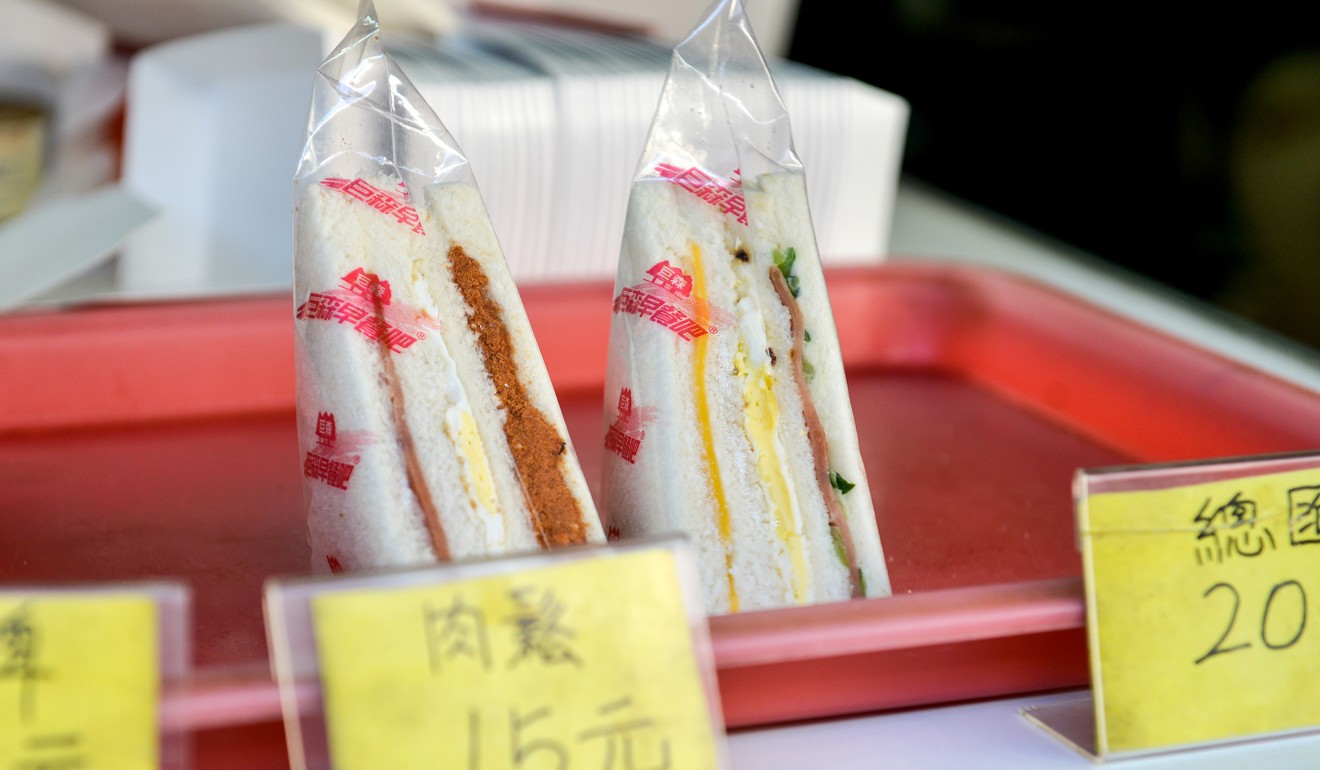
The surroundings may be in need of an overhaul too, with older establishments, sometimes more reliant on takeaway than eat-in, offering just a few tables and plastic stools, and others allow smoking.
Qburger has picked up on people’s hunger for a better ambience by hiring staff who are polite enough to make customers feel optimistic about the rest of their day, Cheng, its CEO, says. Some on his staff of 1,000 worked have already worked in foreign-owned fast-food restaurants where being polite was the norm.
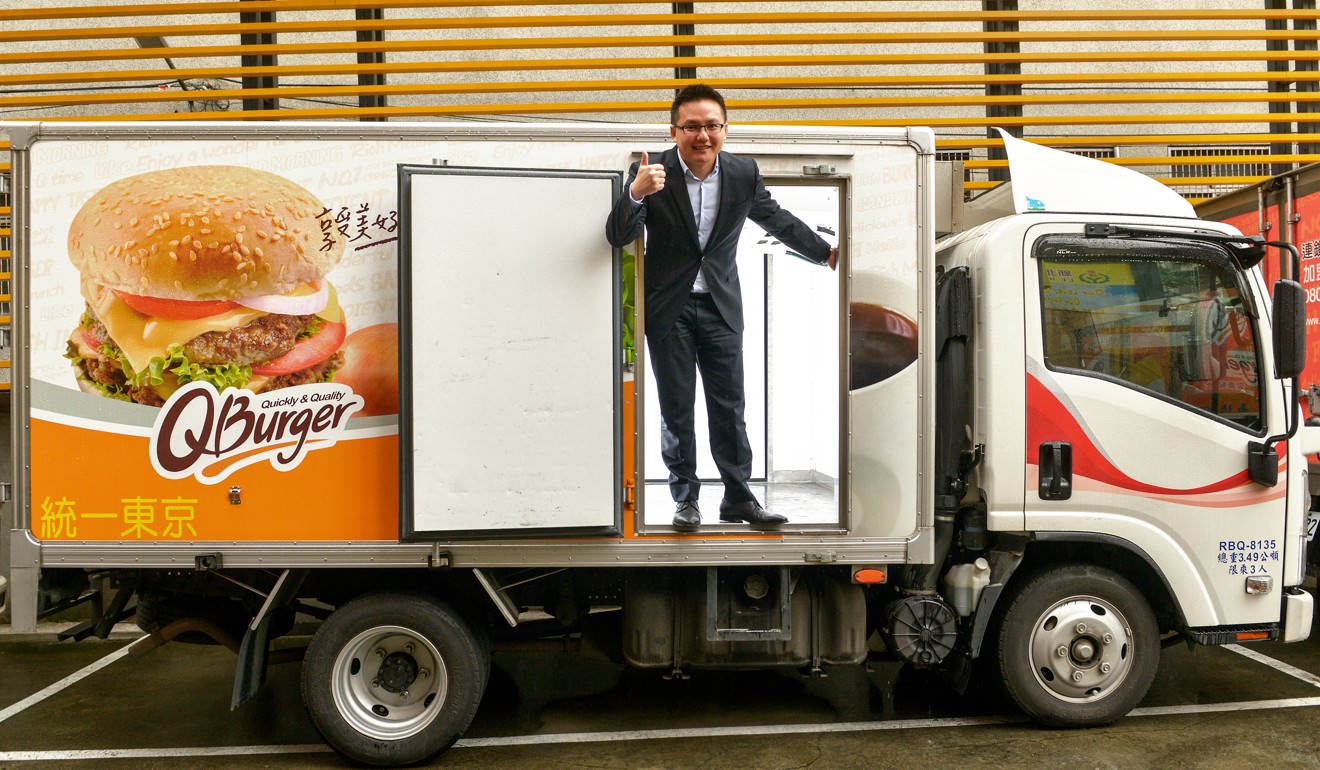
Inside is a magazine rack and a muted television – not the blaring kind some of his competitors use. No one smokes. Chefs go through a six-step process to ensure sanitation, and they’re packing more tomatoes onto burgers to be more nutrition-conscious, Cheng says. Customers will also eventually be able to order breakfast from home via smartphone app.
Qburger is already profitable, though, and can keep prices to NT$70 per meal with a drink by using its economy of scale for supply procurement, Cheng says. He plans to open 50 to 80 new stores per year.
Taiwan’s southern tip - get away from it all, relax and enjoy gentle bike rides, birdwatching, and much more
“Breakfast bars are going in the direction of Starbucks,” he says, referring to the clean, upbeat atmosphere of the global coffeehouse chain.

